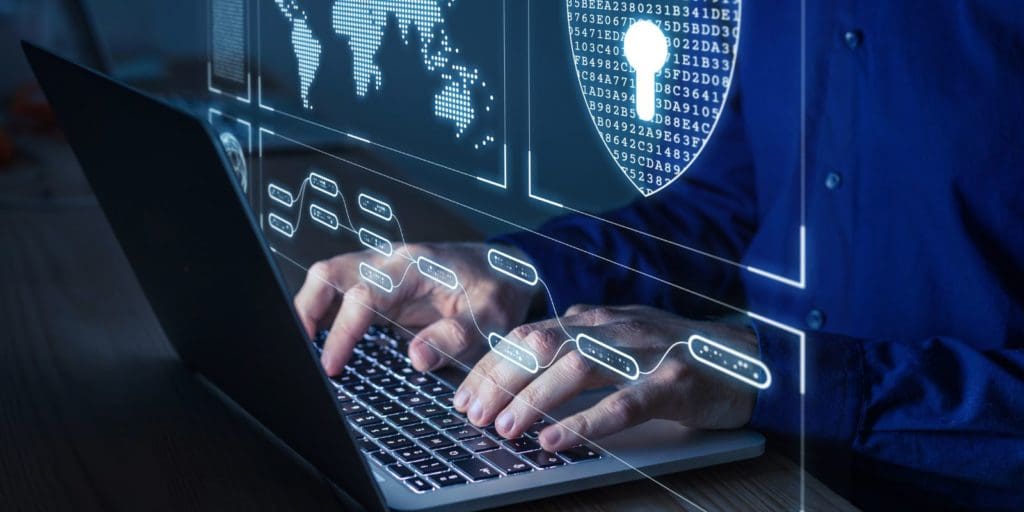Because security is so important, you should lock the doors to your home, car, and bike to prevent theft. Even a card password and bank verification are necessary to protect your money. But that’s the real world; what about protecting your online activities, when you use Wingtalks or other platforms?
The basics of cybersecurity from Wingtalks:
1. Use strong passwords to protect your personal information.
Anyone who knows your password can log into your account and steal sensitive data. By asking your friends for favors under false pretenses, they may be able to deceive them. So how do you protect your password?
When you create a password, pay attention to the requirements for a strong password. Keep changing your password so it’s never the same, and avoid sharing it with others. Don’t give anyone a chance to figure out your password. If you’re worried about losing or forgetting your password often, make sure your password hint is stored securely. You can also find another secure way to store your passwords, such as in an encrypted document on your computer.
2. Avoid giving out too much personal information
It’s a good idea to read the terms and conditions before signing up for Wingtalks and other platforms. This may give you a better understanding of online information security. Since your sensitive information can be shared online once it’s stolen, you need to protect it offline as well. Follow advice like not typing your password out loud in public or not forgetting a purse with sensitive data in it.
3. Keep your devices safe
Your phone and PC are loaded with personal data and cutting-edge devices like facial and fingerprint sensors. Some smartphone users don’t take advantage of available passwords, screen locks and security features to protect their devices. Always make sure your laptops, tablets and other electronic devices are locked and protected.
4. Watch for important software updates
The reason why phone providers and websites like Google keep updating their software is to make it harder for hackers to track down and steal your data. Hackers have the ability to break into your device by changing your software. Install updates as soon as possible, especially if they contain important security updates. Set automatic devices so that you never forget to install an update.
5. Be careful when using Wi-Fi
In restaurants and airports, we can connect with friends using public Wi-Fi, which is useful and free. However, you should worry about their safety. It’s advisable not to connect to unprotected public Wi-Fi networks as there are some of them. Make sure your Wi-Fi is secured with strong passwords if you have one. Also, change your Wi-Fi password frequently.
6. Set up 2-factor authentication
In addition to using passwords and usernames to protect your online accounts, 2-factor authentication is another layer of security. With 2-factor authentication, you can prevent hackers from accessing your account and personal information. It’s important to use this additional security measure to protect your account even if your password has been compromised.
7. Ensure a backup of your personal data
It’s important to back up your important personal data to an external device or cloud storage in case your account is compromised. For example, on Wingtalks, you can try backing up your conversations if you can. Because you never know when your account can be attacked, you should make regular backups.
Here are some tips from Wingtalks to avoid identity theft:
You need to be extremely careful, monitor your accounts closely, and watch for unusual activity if you want to protect your identity online. While some privacy breaches are beyond your control – for example, you can’t prevent your photo or name from being taken and used elsewhere on the Internet – we ask that you take all reasonable steps to protect your information. In this day and age, it’s often difficult to prevent some of your data from being stolen, but you should always be vigilant and report any suspicious behavior.
8. Don’t click on every link you see online.
Links are one method hackers could use to get your data. You can’t rely on everyone you communicate with, even on a network like Wingtalks. Someone could give you a risky link that, if you click on it, could damage your device or infect it with a virus.
9. Immediately report any questionable behavior
Don’t be afraid to report anything suspicious you encounter online. You shouldn’t ignore a warning sign when someone asks you for a favor or makes you an offer that seems too good to be true. Until you’re absolutely sure of what something is, you should treat it with suspicion. Also, before you accept an offer, do some research.
Your Internet security depends on your behavior, just as your physical security starts with securing doors and safes. You need to form habits, such as password security, avoiding giving up data, and not clicking on any link you see, to protect your data, even if your device’s manufacturer and your browser are doing everything they can. Since the Internet is a social environment where people have all kinds of intentions, some of which aren’t necessarily positive, you should be careful when talking to strangers.
Notice that this article is not professional advice and shouldn’t be used to treat any conditions.

